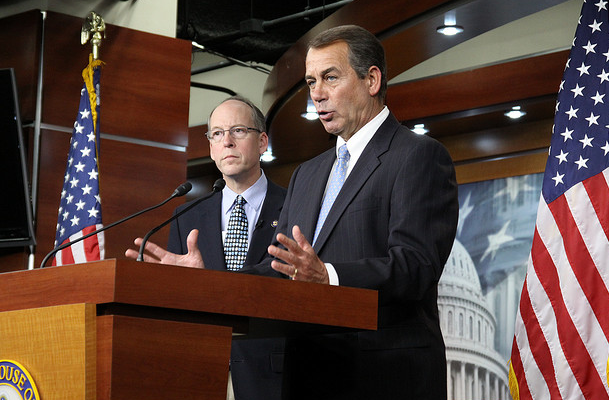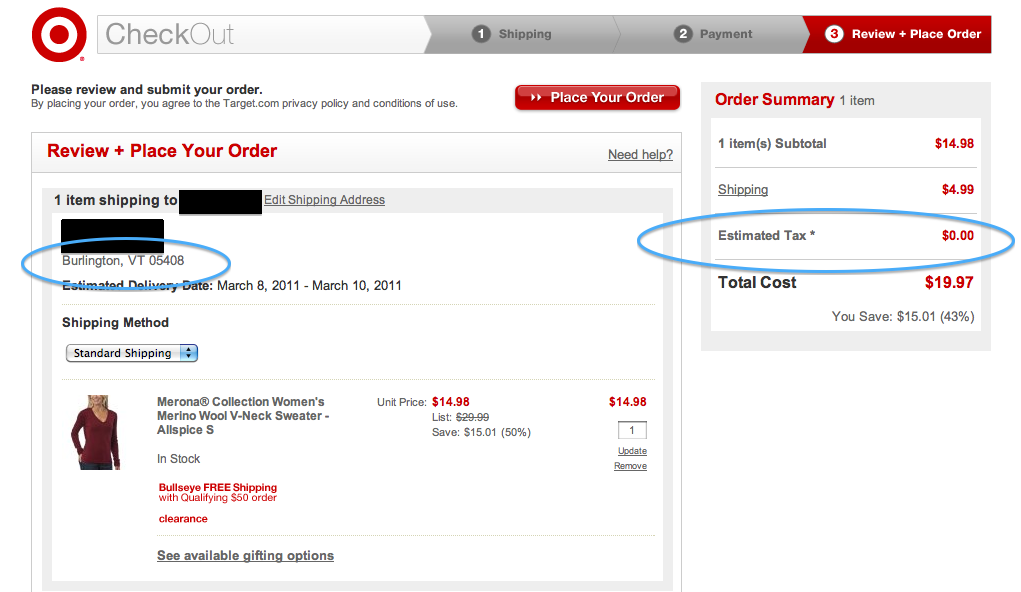Capitol Confidential has previously reported on legislation introduced by California Democratic Assemblywoman Nancy Skinner that seeks to impose a new, and unconstitutional, tax on out-of-state, online retailers including (ironically) a number of eBay users. Capitol Confidential has since learned that a prominent corporate sponsor of such efforts is retail giant Target, and that a number of other big retailers back the legislation, too. According to one source, that group includes Bloomingdale’s.
So what if neither Target nor Bloomingdale’s collected and remitted sales/use taxes in states where they sell online to customers but in which they maintain no physical presence (the practice Skinner’s bill aims to ban by redefining the concept of “nexus”)? Based on what appears on both companies’ websites when one inputs an order using the data of a resident of such states, it appears both corporations are willingly taking advantage of the same constitutional case law as the online retailers targeted by Skinner’s legislation to avoid tax liability.
Here is a screenshot of the “review” page related to a Target transaction input using a Vermont customer’s information. Target’s website indicates that there are no Target stores in Vermont, and this is the final page at which customers can make adjustments, or discard the transaction:
No sales or use tax appears as a line item in the transaction, and the asterisk next to the $0.00 figure merely points to a line saying “why has sales tax been applied?” (which in this case, it has not).
Here is a screenshot of the “review” page related to a Bloomingdale’s transaction input using a Wyoming customer’s information. According to Bloomingdale’s website, there are no Bloomingdale’s stores in Wyoming, and as above, this is the final page at which customers can make adjustments, or discard the transaction.
Again, no sales or use tax appears to be being charged.
Experts say that based on the Supreme Court’s Quill vs. North Dakota decision, there is no reason why either Target or Bloomingdale’s should be charging sales or use tax in instances like these, and that that would almost certainly remain the case were Skinner-type legislation instituted in both states. However, their backing of a measure that would force eBay sellers, Overstock.com and Amazon.com to collect and remit tax in circumstances in which neither of the corporations does the same may strike some as hypocritical. Furthermore, sources say it may suggest that Target and Bloomingdale’s corporate leadership believe the Skinner legislation to be constitutionally dubious, and that their backing of it is less about pure intentions, and more about enlisting a government hand in further bolstering big retail chains’ profits by the back door.
Last month, the LA Times reported that key backers of the Skinner legislation, including Wal-Mart and Home Depot had shown “robust” quarterly profits. Earnings jumped by 26 percent at Wal-Mart, 50 percent at Macy’s– the owner of Bloomingdale’s, and 72 percent at Home Depot. Meanwhile, Barnes & Noble, another corporate backer of Skinner’s legislation, saw a bump in sales, though profits fell due to investment decisions made by the company. (Wal-Mart saw a drop in sales due to internal marketing decisions and competition from dollar stores). That, in turn, has led some to question the merits of the Skinner scheme, as have constitutional arguments and comments recently made by representatives of the state Board of Equalization in a Sacramento hearing.
Reports indicate that Gov. Jerry Brown remains unsold on the proposal, not because it involves a new tax, but potentially because the scheme is expected at best to bring in a mere $200-or-so million a year, potentially much less than that, or even result in a net loss to the state. California currently faces a $26 billion-plus budget gap.
Earlier this week, Skinner’s bill stalled in an Assembly tax committee, though sources say that is likely to be only a temporary situation. The committee’s Democratic majority appears to support the legislation.


COMMENTS
Please let us know if you're having issues with commenting.